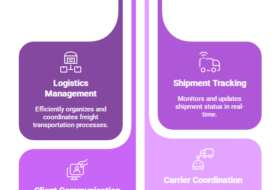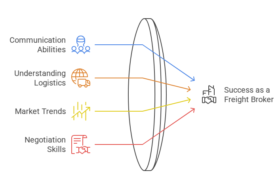Licensed freight broker
Freight brokers are responsible for searching for shippers who need cargo transported from one place to another. Freight brokers must also search for trucks to move the cargo and contact the shippers to let them know that they’ve found trucks. Freight brokers act as middle men for each party and must use cost-effective measures to decide on suitable rates for both parties. Becoming a licensed freight broker in Texas is a fairly easy process.
Get knowledge and training to become a freight broker. Programs such as the Brooke Transportation Training Solutions program in Southlake, Texas, can assist with training classes. Some classes are located in Dallas and others in Fort Worth. The classes will teach students about operations to sales and marketing and how to run a freight brokerage through hands-on learning, video and lectures. Degree programs to get a freight broker license aren’t required.
Apply for a license with the Federal Motor Carrier Safety Administration. The website of the FMCSA, a government agency that issues licenses for freight brokers, has downloadable forms (see Resources). Fill out and complete the FMCSA’s Form OP-1 Application for Motor Property Carrier and Broker Authority. Fees may apply and must be paid out of pocket. After filling out the information for the application, the FMCSA will issue a motor carrier number, which is necessary to continue the application process.
Obtain a $10,000 surety bond or trust fund. These can be obtained from a bank or bonding company. Some companies will put up a bond for you if you have good credit for a yearly fee of around $500 to $700 dollars. Along with the surety bond or trust fund, you must file either a BMC-84 or BMC-85 file (see Resources). A processing agent, which can be around $50 dollars, is required as well along with form BOC-3.
Wait about four to six weeks for the application to be processed. Once you receive your FMCSA Authority certificate you can seek employment.







